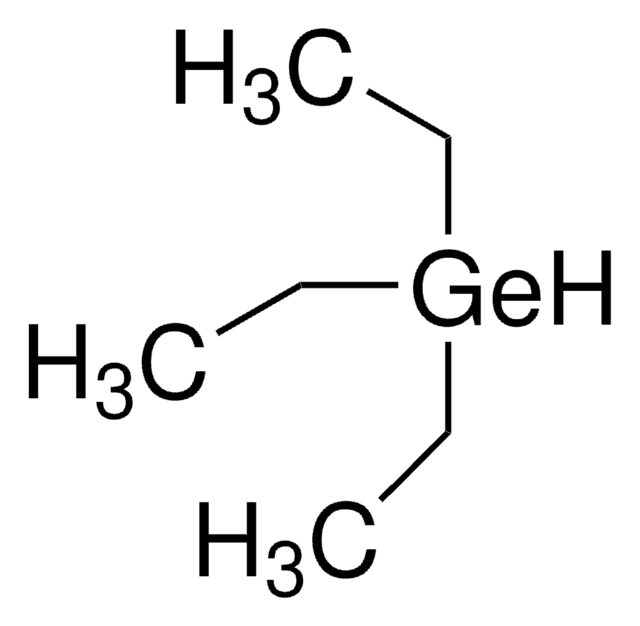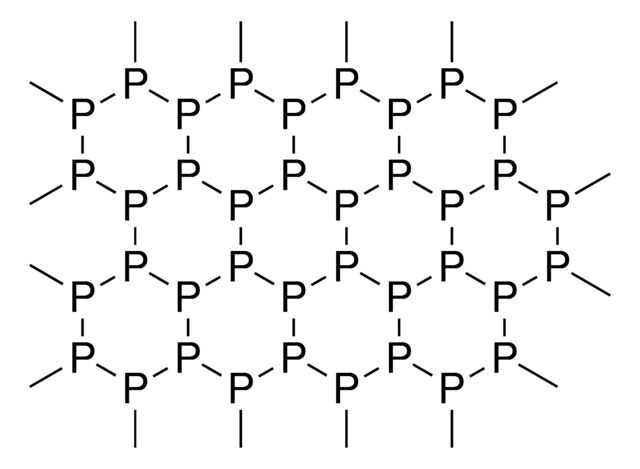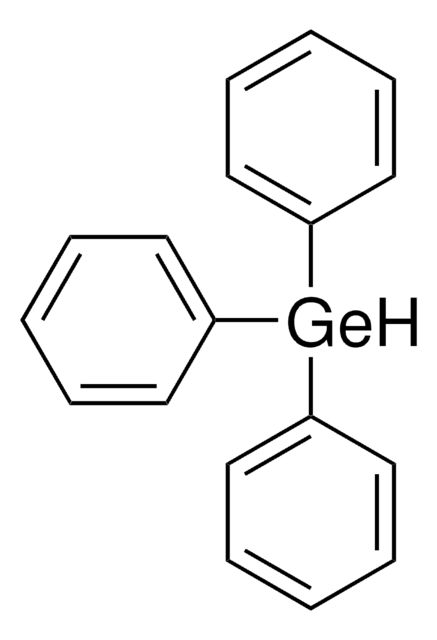906026
Germanane
Synonym(s):
Germanium hydride, Germanium monohydride, Germylidyne
About This Item
Recommended Products
form
powder
SMILES string
[GeH4]
InChI
1S/GeH/h1H
InChI key
ROUHNNRKLNITEM-UHFFFAOYSA-N
Related Categories
General description
Application
Storage Class
11 - Combustible Solids
wgk_germany
WGK 3
flash_point_f
Not applicable
flash_point_c
Not applicable
Choose from one of the most recent versions:
Certificates of Analysis (COA)
Don't see the Right Version?
If you require a particular version, you can look up a specific certificate by the Lot or Batch number.
Already Own This Product?
Find documentation for the products that you have recently purchased in the Document Library.
Articles
The properties of Germananes readily depend on the identity of the terminating ligands, allowing these materials to be readily tailored for a broad array of applications. Here we summarize the synthesis, properties, and potential uses of germanane materials.
Our team of scientists has experience in all areas of research including Life Science, Material Science, Chemical Synthesis, Chromatography, Analytical and many others.
Contact Technical Service







